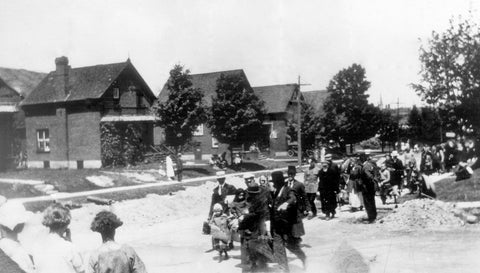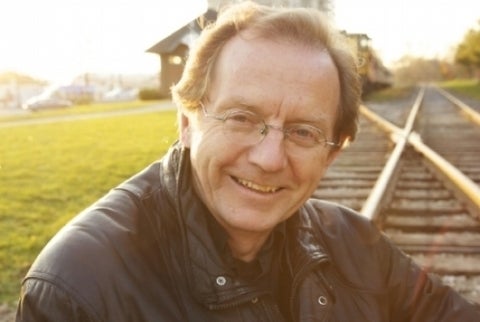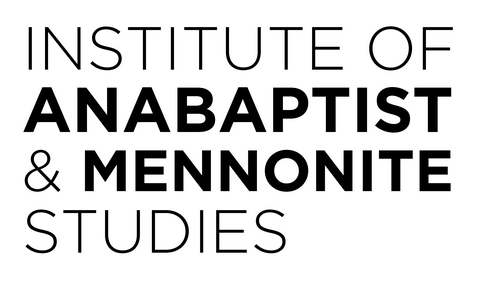The Place of Memory: Reflections on the Russlaender Centenary
A program of music, singing, reading, and reflection on the 100th anniversary of the migration of Mennonites from the former Soviet Union.
Featuring the premiere of “The Place of Memory” composed by Leonard Enns and performed by DaCapo Chamber Choir.
Tickets:
By donation at the door
Please note, this event will not be live streamed.

Arrival of Mennonite immigrants from former Soviet Union, in Waterloo. Image courtesy Mennonite Archives of Ontario.

The DaCapo Chamber Choir
The DaCapo Chamber Choir was founded in 1998 in Kitchener-Waterloo, Ontario under the direction of Leonard Enns. The mission of the choir is to promote the best of contemporary choral music through the highest possible standard of public performance and the intentional championing of music of Canadian and local composers. The choir’s annual national NewWorks choral competition for Canadian composers aids in establishing a vibrant and vital presence for recent and emerging Canadian choral music.

About Leonard Enns
Canadian composer and conductor Leonard Enns holds advanced degrees from Northwestern University, Chicago: a PhD in Music Theory (with a dissertation on the choral music of Harry Somers), and a Master of Music in choral conducting (supervised by the late Margaret Hillis); and undergraduate degrees from Wilfrid Laurier University, Waterloo, Ontario, and Canadian Mennonite Bible College (now Canadian Mennonite University), Winnipeg, Manitoba. He has an ARCT in piano performance.
About the Russlaender Centenary
Beginning in 1923, 21,000 Mennonites from the Soviet Union left a land decimated by violence, famine, and epidemic. They were fortunate to find shelter in far-off Canada, where government, church communities and private businesses rallied to their cause. These migrants, popularly known as the Russlaender Mennonites, made Canada their home and for nearly 100 years they have prospered and found avenues for business, professional development and service.
The Russlaender Centenary Committee (RCC), a subcommittee of the Mennonite Historical Society of Canada, is planning a re-enactment of the initial train trip into Canada. In each of the provinces, from Quebec to British Columbia, events are being organized to celebrate the faith of these newcomers, to remember the loss of their former communities, to memorialize the challenges of resettlement, and to acknowledge race and displacement in Canadian history.
As part of this commemoration, the RCC has established the “Russlaender Remembrance Fund” through Mennonite Central Committee Canada. As MCC was formed to help these Mennonites in 1920, this fund would have a historical connection to MCC’s beginnings and be divided to support three current MCC programs, each of significance to this migration.
To acknowledge race and displacement, this Fund will support MCC’s Indigenous Neighbours program. To remember the loss of their former communities, the Fund will support the MCC Ukraine program. To recognize the challenges of resettlement in our time, the Fund will assist the work of MCC’s International Refugee Settlement program.
Sponsored by:




